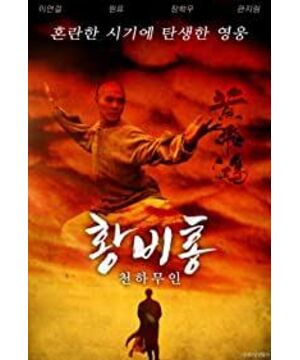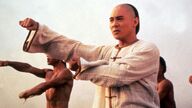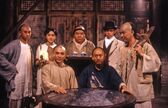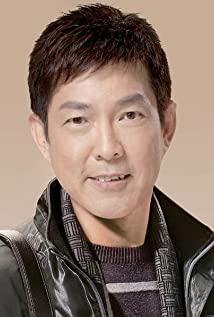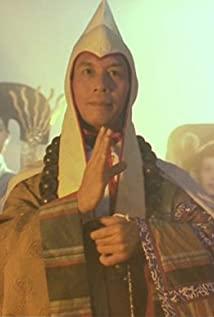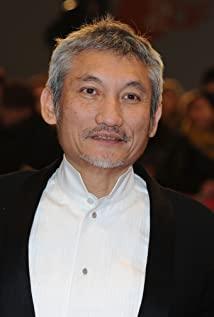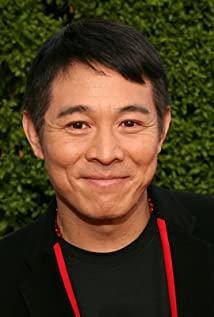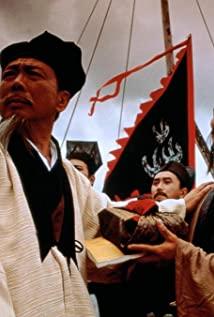When I was in junior high school, I really liked watching Jet Li's three Wong Fei-hung movies, and I still watch it on TV occasionally. At that time, I was completely attracted by Jet Li's chic and novel fighting. This is not just a series of martial arts movies, it can be said to be the pinnacle of the golden age of Hong Kong films because of its rich content, extensive thinking, and grand feelings.
The feeling of home and country that is infiltrated all the time, has always been rarely felt in Hong Kong films. Even if there is, it is only superficial and superficial. The background of Huang Feihong's trilogy is the era of poverty and weakness in China, internal and external troubles, The generally weak body of the Chinese people endured the insult of the "sick man of East Asia". Huang Feihong changed from hanging a pot to help the world, practicing martial arts to strengthen his body, and uniting to fight against foreign enemies, to the later "martial arts can't beat foreign guns" and shouting to broaden the wisdom of the people. In that era, people with lofty ideals tried their best to find a way to save China. Among them, there were various characters like Liu Yongfu, Lu Haodong, Nalan Yuanshu, and Yan Zhendong, who were real, fictional, enlightened, ignorant, loyal, or clinging to the country. Destiny rises and falls together, and becomes the main line of the plot throughout the film. It should be said that without such a deep sense of family and country as the main driving force and background color of "the great hero", Huang Feihong would not have resonated widely and strongly with the audience, and Huang Feihong would not have used the "national self-improvement and courageous struggle". The hero image has become a classic role in the audience's recognition and convincing.
If it is said that telling the family and country feelings of that era will make the audience feel too heavy, then Director Tsui Hark uses comedy to deal with the discussion of the conflict between Chinese and Western cultures, which not only adds humor and interest, but also dilutes the heavy mood of the audience, making the overall rhythm of the film. Don't get bogged down in emotions. In the whole withered social scene, the film shows many dramatic conflicts such as Western mission and Chinese opera, Western medicine and traditional Chinese medicine, ballroom dancing and martial arts. As a thinker in it, Huang Feihong also hesitated to come to a conclusion. It is entirely up to the audience to think for themselves. China has experienced "big changes unseen in thousands of years", and it should be considered by the whole people, and it is also in line with the final choice of widening the wisdom of the people.
The grand perspective of the film is reflected to a certain extent in the fullness of Huang Feihong's character image. In addition to Jet Li's upright external image, a solid and stable foundation of martial arts, a wide-open trick design, and a shy and restrained emotional expression, it is inseparable from the film. The support of a group of supporting roles, and the love between the thirteen aunts representing Western culture, from traditional to open; the master-disciple relationship with Liang Kuan, Zhurong, Yazusu, and Guizu seven disciples with different cultural backgrounds , has always maintained a rigorous and serious tradition, which is a unique feeling of Chinese culture that is different from the West, and is related to the inheritance of cultural civilization; with Liu Yongfu, Nalan Yuanshu and other court officials, there are both traditional loyalty to the monarch. There are struggles after seeing through the situation of the DPRK; the Shahe Gang, which represents the feudal and backward White Lotus Sect and the fish-flesh people, is gnashing of teeth; he has deep feelings for the people at that time, and he also deeply understands their ignorance and ignorance. Such complex interweaving of emotions is in line with the times and the character settings, so that Huang Feihong, a hero who is easy to be stereotyped, is vivid and awe-inspiring, arousing the emotional resonance of the audience, and also from these numerous supporting roles. The changes in the relationship with Huang Feihong fully demonstrated the social thinking at that time.
In the end, I have to say that Director Tsui Hark may be the aura of the founder of the new martial arts school and the pioneer of film stunts that is too dazzling. Try and work hard.
View more about Once Upon a Time in China reviews


